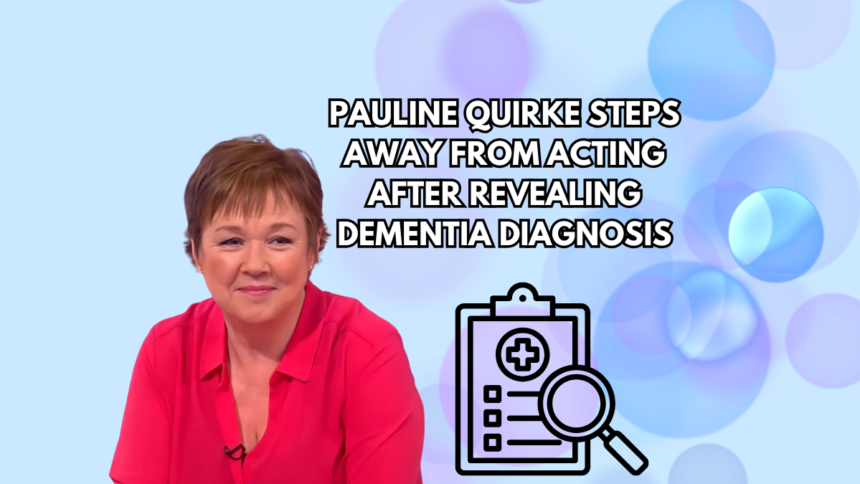Ayurvedic Treatment for Dementia
Ayurvedic therapies aim to restore balance, improve brain function, and slow cognitive decline using herbs, therapies, and lifestyle modifications.
Contents
Pauline Quirke steps away from acting after revealing dementia diagnosis
——-Video Credits
Pauline Quirke, famous for starring in TV sitcom Birds of a Feather, has retired from acting following a dementia diagnosis, her husband has said.
- Herbs and Medications
These herbs strengthen the nervous system, improve memory, and calm the mind:- Brahmi (Bacopa monnieri)
- Improves memory, concentration, and mental clarity.
- Dosage: 500 mg to 1 g of Brahmi powder daily, or as directed by a practitioner.
- Ashwagandha (Withania somnifera)
- Reduces stress, anxiety, and inflammation in brain tissues.
- Dosage: 300-600 mg daily, typically as a capsule or powder mixed with milk.
- Shankhpushpi (Convolvulus pluricaulis)
- Enhances cognitive functions and alleviates mental fatigue.
- Dosage: 1-2 teaspoons of syrup or powder daily.
- Gotu Kola (Centella asiatica)
- Enhances blood circulation to the brain and promotes neural health.
- Dosage: 500 mg twice daily in capsule form or as tea.
- Turmeric (Curcuma longa)
- Contains curcumin, which reduces inflammation and supports brain health.
- Dosage: 1-2 teaspoons of turmeric powder daily with warm milk or as capsules.
- Brahmi (Bacopa monnieri)
- Panchakarma Therapies
Detoxifying therapies that restore dosha balance and rejuvenate the body:- Abhyanga (Oil Massage)
- Warm, medicated oils like Brahmi or Ashwagandha oil are used for head and body massage to improve circulation and calm the nervous system.
- Shirodhara
- A continuous stream of medicated oil poured over the forehead helps soothe the mind and reduces stress.
- Nasya (Nasal Therapy)
- Administration of herbal oils (e.g., Anu Taila) into the nostrils clears mental fog and enhances cognitive abilities.
- Basti (Medicated Enema)
- Removes toxins from the body and rejuvenates the nervous system using medicated oils and herbal decoctions.
- Abhyanga (Oil Massage)
- Dietary Recommendations
A balanced diet supports brain health and calms Vata dosha:- Include healthy fats like ghee, nuts, and seeds (almonds, walnuts, flaxseeds).
- Add brain-boosting foods like leafy greens, whole grains, and fruits (amla, pomegranate).
- Avoid processed foods, excessive caffeine, and cold, dry foods that aggravate Vata.
- Stay hydrated with warm water and herbal teas.
- Lifestyle Practices
- Yoga and Pranayama:
- Practice Bhramari (humming bee breath), Anulom Vilom (alternate nostril breathing), and meditation to calm the mind and improve focus.
- Gentle yoga poses like Balasana (Child’s Pose) and Viparita Karani (Legs-Up-The-Wall Pose) enhance circulation to the brain.
- Daily Routine:
- Follow a Vata-pacifying routine, including regular sleep, meals, and gentle exercise.
- Avoid overstimulation and practice mindfulness.
- Yoga and Pranayama:
- Mental Stimulation and Emotional Support
- Engage in activities that challenge the brain, like puzzles or learning new skills.
- Stay socially connected with friends and family to maintain emotional well-being.
Ayurvedic Benefits for Dementia
- Slows Cognitive Decline: Herbal remedies and therapies rejuvenate brain tissues and improve neural function.
- Calms the Mind: Panchakarma therapies and yoga reduce anxiety and promote mental clarity.
- Holistic Approach: Treats the root cause of imbalance while supporting physical, mental, and emotional health.
Important Note
While Ayurveda offers supportive care for dementia, it is crucial to combine these practices with modern medical treatment, particularly for progressive conditions like Alzheimer’s or severe dementia. Consult a qualified Ayurvedic practitioner for a personalized treatment plan.


